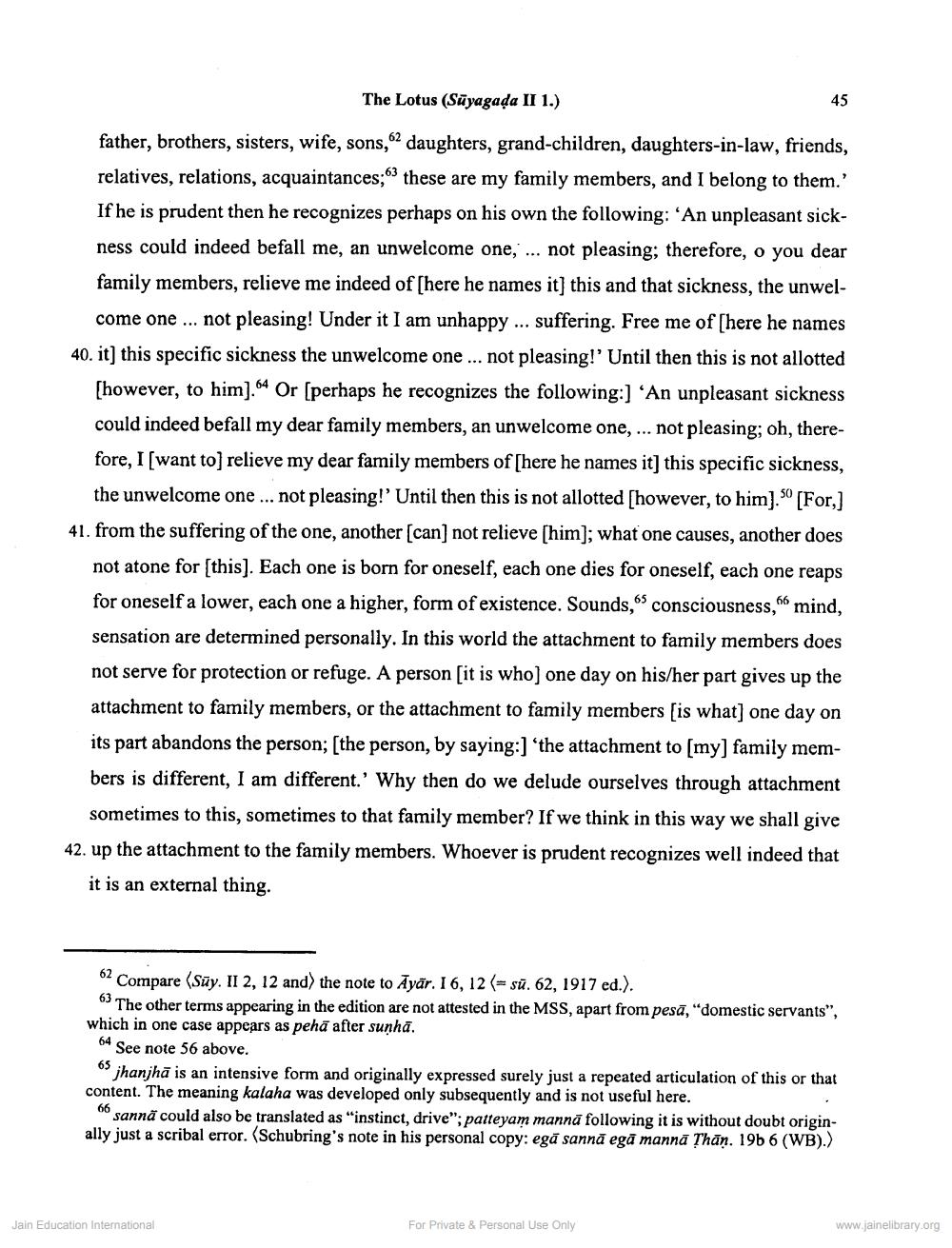________________
The Lotus (Suyagaḍa II 1.)
father, brothers, sisters, wife, sons,62 daughters, grand-children, daughters-in-law, friends, relatives, relations, acquaintances; these are my family members, and I belong to them." If he is prudent then he recognizes perhaps on his own the following: 'An unpleasant sickness could indeed befall me, an unwelcome one, ... not pleasing; therefore, o you dear family members, relieve me indeed of [here he names it] this and that sickness, the unwelcome one... not pleasing! Under it I am unhappy ... suffering. Free me of [here he names 40. it] this specific sickness the unwelcome one... not pleasing!' Until then this is not allotted [however, to him]." Or [perhaps he recognizes the following:] 'An unpleasant sickness could indeed befall my dear family members, an unwelcome one, ... not pleasing; oh, therefore, I [want to] relieve my dear family members of [here he names it] this specific sickness, the unwelcome one... not pleasing!' Until then this is not allotted [however, to him]. [For,] 41. from the suffering of the one, another [can] not relieve [him]; what one causes, another does not atone for [this]. Each one is born for oneself, each one dies for oneself, each one reaps for oneself a lower, each one a higher, form of existence. Sounds, consciousness," mind, sensation are determined personally. In this world the attachment to family members does not serve for protection or refuge. A person [it is who] one day on his/her part gives up the attachment to family members, or the attachment to family members [is what] one day on its part abandons the person; [the person, by saying:] 'the attachment to [my] family members is different, I am different.' Why then do we delude ourselves through attachment sometimes to this, sometimes to that family member? If we think in this way we shall give 42. up the attachment to the family members. Whoever is prudent recognizes well indeed that it is an external thing.
62 Compare (Suy. II 2, 12 and) the note to Ayar. I 6, 12 (= sū. 62, 1917 ed.).
63
The other terms appearing in the edition are not attested in the MSS, apart from pesa, "domestic servants", which in one case appears as peha after suṇhā.
64 See note 56 above.
45
65 jhanjhā is an intensive form and originally expressed surely just a repeated articulation of this or that content. The meaning kalaha was developed only subsequently and is not useful here.
66
sannä could also be translated as "instinct, drive"; patteyam manna following it is without doubt originally just a scribal error. (Schubring's note in his personal copy: ega sanna ega manna Than. 19b 6 (WB).)
Jain Education International
For Private & Personal Use Only
www.jainelibrary.org




